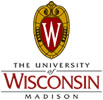Adobe Creative Cloud Available Free for UW-owned Computers
Campus signed a license agreement with Adobe that allows us to install Creative Cloud applications on UW-owned computers free of charge. Creative Cloud includes Adobe products like Acrobat Pro, Dreamweaver, and Photoshop, among others. Visit DoIT's KB for a complete list of software included. SSCC members with PCs in the Social Sciences building that log into PRIMO should visit SSCC's KB for instructions on how to download the software. SSCC members with Macs in the Social Sciences building should contact SSCC's help desk. Others outside of the building need to contact their own support units.
Faculty and staff can purchase a one-year subscription to Creative Cloud Home Use for $19.95 for installation on personally-owned computers.
SSCC's Spring Training Schedule
SSCC's Spring training is well underway. This month we have MATLAB 2 (which begins on Monday), Stata Programming, Introduction to Dedoose (qualitative software), and Stata Workshop: More Programming Tools. Last but not least we have a little known workshop called Using Patterns to Transform Your Data. We have gotten very good feedback about this workshop in the past and we encourage you to check it out. Remember that all SSCC training sessions require preregistration.
Windows XP Support Ends April 8
As of April 8, 2014 Microsoft will end its support of Windows XP including operating system updates that help protect your PC. If you continue to run Windows XP, your PC will be vulnerable to security risks, malware, and viruses. It’s likely malware producers are waiting to release their most effective attacks after April 8 when no fixes will be available. You can also expect to encounter greater numbers of applications and devices that do not work with Windows XP.
After April 8, Windows XP PCs will no longer be allowed on the campus network (See UW-Madison’s policy). This includes any wired, wireless (UW Net), or VPN network connection. SSCC provides PC support for SSCC members residing in the Social Science building and we would like you to contact our help desk if you have a Windows XP PC (even if it's at home and used for University business). We will upgrade your operating system if possible or work with you to replace your PC. SSCC members in other buildings should contact their local IT support staff. Also, you should check your personal PCs at home and take appropriate action if they are still running Windows XP.
Legacy VPN Service to be Discontinued June 2
Last summer we adopted the newly-upgraded campus VPN service—the new service is faster, more secure, and has better mobile compatibility than the SSCC's existing VPN service. The new VPN service also encrypts your traffic, which is especially beneficial when you are using a wireless connection. We plan to discontinue SSCC's legacy VPN service on June 2.
For those unfamiliar, a VPN (Virtual Private Network) allows a device to connect to the SSCC network as if it were in the building regardless of its location. This gives you access to network drives and printers. It also allows you to use services that are restricted outside of the university (like many library databases).
To get started using the new campus VPN you can follow the steps in our Knowledge Base (KB) article Connecting to the SSCC Network via VPN. If you've previously mapped drives using the old VPN service you may need to follow the KB article to remap them.
SSCC Job Opening
The SSCC has an immediate job opening for a permanent full-time Statistical Computing/Help Desk Specialist. Main responsibilities include providing consulting and instruction on statistical software and providing support on a variety of other software including Microsoft Office 365. If you are interested (or know of someone who might be) in a career in supporting research and instructional computing, please check out our position announcement.
Reminder: MS Office not available to Students on Winstat
We want to remind instructors that, as of last summer, Microsoft Office is no longer available on Winstat to students who receive SSCC accounts for a class. It is available to faculty, grad students or staff. Students can use Office in the labs, but not remotely. This change was required by the University's license agreement with Microsoft and we do not anticipate it being reversed.
In most cases it's easy to structure homework assignments so that they don't require Office. For example, give the students data sets in Stata format or as text files rather than Excel spreadsheets. Have them turn in log files rather than pasting output into Word. Often this will lead the students to a workflow that's more like actual research. The SSCC's statistical computing specialists can help if you need more suggestions.

